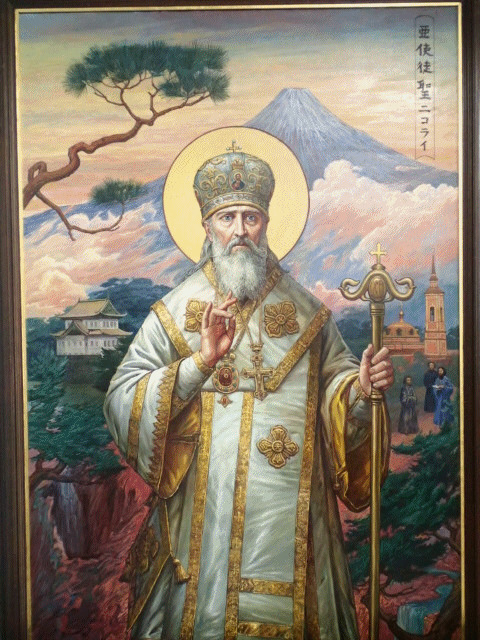#Philadelphus ‘Virginal’
Photo

Brittleness
#Philadelphus ‘Virginal’#flower#white flowers#confession#heartlessness#brittlenes#arrugance#Brittleness relationship
17 notes
·
View notes
Text



Чубушник (жасмин садовый) 'Виргинал' (девичий)
(Philadelphus virginalis)
Сорт 'Виргинал' считается одним из самых популярных сортов Чубушника в мире. Его махровые цветки обладают приятным ароматом из ванили и апельсинового дерева.Чубушник активно цветет в июне и июле, в этот период на нем появляется множество белых махровых цветов. Их запах не только очень приятный, но и довольно сильный. Причем в ночное время он усиливается еще больше.
Аромат жасмина садового часто используется в изготовлении сборов для чая. Цветы чубушника нужно собирать в жаркую погоду, когда концентрация аромата достигает своего максимума. Хорошо высушенные в затемненном помещении, они хранятся в стеклянной или бумажной таре. При добавлении в чай сухой цветок распрямляет свои лепестки, выравнивается, излучая удивительный аромат лета. Лучшего антидепрессанта в холодные зимние вечера не придумать.
Mock orange (garden jasmine) 'Virginal' (girlish) (Philadelphus virginalis)
Variety 'Virginal' is considered one of the most popular varieties of Chubushnik in the world. Its double flowers have a pleasant aroma of vanilla and orange tree. Mock orange actively blooms in June and July, during this period it appears a lot of white double flowers. Their smell is not only very pleasant, but also quite strong. And at night it intensifies even more.
The fragrance of garden jasmine is often used in tea preparations. Mock orange flowers should be collected in hot weather, when the concentration of aroma reaches its maximum. Well dried in a darkened room, they are stored in glass or paper containers. When added to tea, a dry flower straightens its petals, flattens out, radiating an amazing aroma of summer. There is no better antidepressant on cold winter evenings.
#русский tumblr#россия#природа#лето#цветы#белые цветы#чубушник#городскойпейзаж#макрофото#чернобелаяфотография#мои фото#russia#nature#nature photography#summer#flowers#white flowers#mock orange#my photos#beauty of nature#flower photography#flower aesthetic#original photography#macro photography#white black photo#photographers on tumblr
62 notes
·
View notes
Text
Saints&Reading: Wed., Feb. 16, 2022
February 16_February 3
RIGHTEOUS SIMEON THE GOD-RECEIVER (1st c.)

Righteous Simeon the God-Receiver was, according to the testimony of the holy Evangelist Luke, a just and devout man waiting for the consolation of Israel, and the Holy Spirit was upon him (Luke 2:25). God promised him that he would not die until the promised Messiah, Christ the Lord, came into the world.
According to the tradition, it is said that the Egyptian pharaoh Ptolemy II Philadelphus (285-247 B.C.) wished to include texts of Holy Scripture in the famous Library at Alexandria. He invited scholars from Jerusalem, and the Sanhedrin sent their wise men. The Righteous Simeon was one of the seventy scholars who came to Alexandria to translate the Holy Scriptures into Greek. The completed work was called “The Septuagint,” and is the version of the Old Testament used by the Orthodox Church.
Saint Simeon was translating a book of the Prophet Isaiah, and read the words: “Behold, a virgin shall conceive in the womb, and shall bring forth a Son” (Is 7:14). He thought that “virgin” was inaccurate, and he wanted to correct the text to read “woman.” At that moment an angel appeared to him and held back his hand saying, “You shall see these words fulfilled. You shall not die until you behold Christ the Lord born of a pure and spotless Virgin.”
From this day, Saint Simeon lived in expectation of the Promised Messiah. One day, the righteous Elder received a revelation from the Holy Spirit, and came to the Temple. It was on the very day (the fortieth after the Birth of Christ) when the All-Pure Virgin Mary and Saint Joseph had come to the Temple in order to perform the ritual prescribed by Jewish Law.
When Saint Simeon beheld their arrival, the Holy Spirit revealed to him that the divine Child held by the All-Pure Virgin Mary was the Promised Messiah, the Savior of the world. The Elder took the Child in his arms and said, “Lord, now lettest Thou Thy servant depart in peace, according to Thy word, for mine eyes have seen Thy salvation, which Thou hast prepared before the face of all people, a light to enlighten the Gentiles, and the glory of Thy people Israel” (Luke 2:29-32).
There is a Christian epigram (Number 46) in “The Greek Anthology” which is addressed to Saint Simeon. It tells the righteous Elder to receive the Child Who was born before Adam, and Who will deliver Simeon from this life and bring him to eternal life. A similar idea is expressed in the Aposticha (Slavic use) for the Forefeast of the Nativity of the Lord (December 24). There the Mother of God refers to her Son as “older than ancient Adam.”
Simeon blessed the All-Pure Virgin and Saint Joseph, and turning to the Mother of God he said, “Behold, this child is set for the fall and rising again of many in Israel, and for a sign which shall be spoken against. Yea, a sword shall pierce through your own soul also, that the thoughts of many hearts may be revealed” (Luke 2:34-35).
The holy Evangelist continues: “And there was one Anna, a prophetess, the daughter of Phanuel of the tribe of Aser. She was of a great age, and had lived with a husband for seven years from her virginity; and she was a widow of about eighty-four years, who did not leave the temple, but served God with fastings and prayers night and day. And coming at that very hour, also gave thanks to the Lord, and spoke of Him to all those who looked for redemption at Jerusalem” (Luke 2:36-38).
The holy righteous Simeon the God-Receiver died at a great age (Tradition says he was 360). His holy relics were transferred to Constantinople in the sixth century. His grave was seen by the Russian pilgrim Saint Anthony, the future Archbishop of Novgorod (October 8) in 1200.
ANNA THE PROPHETESS (1st c.)

According to Saint Luke’s Gospel, “And there was one Anna, a prophetess, the daughter of Phanuel of the tribe of Aser. She was of a great age, and had lived with a husband for seven years from her virginity; and she was a widow of about eighty-four years, who did not leave the temple, but served God with fastings and prayers night and day. And coming at that very hour, also gave thanks to the Lord, and spoke of Him to all those who looked for redemption at Jerusalem” (Luke 2:36-38).
HOLY EQUAL-TO-THE-APOSTLES NIKOLAI, ARCHBISHOP, APOSTLE TO JAPAN (1912)

Saint Nicholas, Enlightener of Japan, was born Ivan Dimitrievich Kasatkin on August 1, 1836 in the village of Berezovsk, Belsk district, Smolensk diocese, where his father served as deacon. At the age of five he lost his mother. He completed the Belsk religious school, and afterwards the Smolensk Theological Seminary. In 1857 Ivan Kasatkin entered the Saint Peterburg Theological Academy. On June 24, 1860, in the academy temple of the Twelve Apostles, Bishop Nectarius tonsured him with the name Nicholas.
On June 29, the Feast of the foremost Apostles Peter and Paul, the monk Nicholas was ordained deacon. The next day, on the altar feast of the academy church, he was ordained to the holy priesthood. Later, at his request, Father Nicholas was assigned to Japan as head of the consular church in the city of Hakodate.
At first, the preaching of the Gospel in Japan seemed completely impossible. In Father Nicholas’s own words: “the Japanese of the time looked upon foreigners as beasts, and on Christianity as a villainous sect, to which only villains and sorcerers could belong.” He spent eight years in studying the country, the language, manners and customs of the people among whom he would preach.
In 1868, the flock of Father Nicholas numbered about twenty Japanese. At the end of 1869 Hieromonk Nicholas reported in person to the Synod in Peterburg about his work. A decision was made, on January 14, 1870, to form a special Russian Spiritual Mission for preaching the Word of God among the pagan Japanese. Father Nicholas was elevated to the rank of archimandrite and appointed as head of this Mission.
Returning to Japan after two years in Russia, he transferred some of the responsibility for the Hakodate flock to Hieromonk Anatolius, and began his missionary work in Tokyo. In 1871 there was a persecution of Christians in Hakodate. Many were arrested (among them, the first Japanese Orthodox priest Paul Sawabe). Only in 1873 did the persecution abate somewhat, and the free preaching of Christianity became possible.

In this year Archimandrite Nicholas began the construction of a stone building in Tokyo which housed a church, a school for fifty men, and later a religious school, which became a seminary in 1878.
In 1874, Bishop Paul of Kamchatka arrived in Tokyo to ordain as priests several Japanese candidates recommended by Archimandrite Nicholas. At the Tokyo Mission, there were four schools: for catechists, for women, for church servers, and a seminary. At Hakodate there were two separate schools for boys and girls.
In the second half of 1877, the Mission began regular publication of the journal “Church Herald.” By the year 1878 there already 4115 Christians in Japan, and there were a number of Christian communities. Church services and classes in Japanese, the publication of religious and moral books permitted the Mission to attain such results in a short time. Archimandrite Nicholas petitioned the Holy Synod in December of 1878 to provide a bishop for Japan.
Archimandrite Nicholas was consecrated bishop on March 30, 1880 in the Trinity Cathedral of Alexander Nevsky Lavra. Returning to Japan, he resumed his apostolic work with increased fervor. He completed construction on the Cathedral of the Resurrection of Christ in Tokyo, he translated the service books, and compiled a special Orthodox theological dictionary in the Japanese language.
Great hardship befell the saint and his flock at the time of the Russo-Japanese War. For his ascetic labor during these difficult years, he was elevated to the rank of Archbishop.
In 1911, half a century had passed since the young hieromonk Nicholas had first set foot on Japanese soil. At that time there were 33,017 Christians in 266 communities of the Japanese Orthodox Church, including 1 Archbishop, 1 bishop, 35 priests, 6 deacons, 14 singing instructors, and 116 catechists.
On February 3, 1912, Archbishop Nicholas departed peacefully to the Lord at the age of seventy-six. The Holy Synod of the Russian Orthodox Church glorified him on April 10, 1970, since the saint had long been honored in Japan as a righteous man, and a prayerful intercessor before the Lord.


MARK 13:24-31
24 But in those days, after that tribulation, the sun will be darkened, and the moon will not give its light; 25 the stars of heaven will fall, and the powers in the heavens will be shaken. 26 Then they will see the Son of Man coming in the clouds with great power and glory. 27 And then He will send His angels, and gather together His elect from the four winds, from the farthest part of earth to the farthest part of heaven. 28 Now learn this parable from the fig tree: When its branch has already become tender, and puts forth leaves, you know that summer is near. 29 So you also, when you see these things happening, know that it is near-at the doors! 30 Assuredly, I say to you, this generation will by no means pass away till all these things take place. 31 Heaven and earth will pass away, but My words will by no means pass away.
2 PETER 3:1-18
1 Beloved, I now write to you this second epistle (in both of which I stir up your pure minds by way of reminder), 2 that you may be mindful of the words which were spoken before by the holy prophets, and of the commandment of us, the apostles of the Lord and Savior, 3 knowing this first: that scoffers will come in the last days, walking according to their own lusts, 4 and saying, "Where is the promise of His coming? For since the fathers fell asleep, all things continue as they were from the beginning of creation." 5 For this they willfully forget: that by the word of God the heavens were of old, and the earth standing out of water and in the water, 6 by which the world that then existed perished, being flooded with water. 7 But the heavens and the earth which are now preserved by the same word, are reserved for fire until the day of judgment and perdition of ungodly men. 8 But, beloved, do not forget this one thing, that with the Lord one day is as a thousand years, and a thousand years as one day. 9 The Lord is not slack concerning His promise, as some count slackness, but is long suffering toward us, not willing that any should perish but that all should come to repentance. 10 But the day of the Lord will come as a thief in the night, in which the heavens will pass away with a great noise, and the elements will melt with fervent heat; both the earth and the works that are in it will be burned up. 11 Therefore, since all these things will be dissolved, what manner of persons ought you to be in holy conduct and godliness, 12 looking for and hastening the coming of the day of God, because of which the heavens will be dissolved, being on fire, and the elements will melt with fervent heat? 13 Nevertheless we, according to His promise, look for new heavens and a new earth in which righteousness dwells. 14 Therefore, beloved, looking forward to these things, be diligent to be found by Him in peace, without spot and blameless; 15 and consider that the long suffering of our Lord is salvation-as also our beloved brother Paul, according to the wisdom given to him, has written to you, 16 as also in all his epistles, speaking in them of these things, in which are some things hard to understand, which untaught and unstable people twist to their own destruction, as they do also the rest of the Scriptures. 17 You therefore, beloved, since you know this beforehand, beware lest you also fall from your own steadfastness, being led away with the error of the wicked; 18 but grow in the grace and knowledge of our Lord and Savior Jesus Christ. To Him be the glory both now and forever. Amen.
3 notes
·
View notes
Note
🌺 ily angel!
ily too, angel !! white, angel wings, lambs, and doves.. i think philadelphus ‘virginal’ mock orange is the flora just for you!
send me a “🌺” and i’ll reply with a specific flower chosen just for you!
1 note
·
View note
Text
My beautiful mock orange Philadelphus 'Virginal' about to burst into full flower.

submitted by /u/Dhorlin
[link] [comments]
My beautiful mock orange Philadelphus 'Virginal' about to burst into full flower. published first on https://yeuhoavn.tumblr.com/
0 notes
Photo

Flowers Drawings Inspiration : Philadelphus 'Virginal' Mock orange / Philadelphus x virginalis 'Vi… http://bit.ly/2PZDsNL
0 notes
Photo

Holy, Righteous Simeon the God-Receiver Commemorated on February 3
Troparion & Kontakion
Righteous Simeon the God-Receiver was, according to the testimony of the holy Evangelist Luke, a just and devout man waiting for the consolation of Israel, and the Holy Spirit was upon him (Luke 2:25). God promised him that he would not die until the promised Messiah, Christ the Lord, came into the world.
Ancient historians tell us that the Egyptian pharaoh Ptolemy II Philadelphus (285-247 B.C.) wished to include texts of Holy Scripture in the famous Library at Alexandria. He invited scholars from Jerusalem, and the Sanhedrin sent their wise men. The Righteous Simeon was one of the seventy scholars who came to Alexandria to translate the Holy Scriptures into Greek. The completed work was called “The Septuagint,” and is the version of the Old Testament used by the Orthodox Church.
Saint Simeon was translating a book of the Prophet Isaiah, and read the words: “Behold, a virgin shall conceive in the womb, and shall bring forth a Son” (Is 7:14). He thought that “virgin” was inaccurate, and he wanted to correct the text to read “woman.” At that moment an angel appeared to him and held back his hand saying, “You shall see these words fulfilled. You shall not die until you behold Christ the Lord born of a pure and spotless Virgin.”
From this day, Saint Simeon lived in expectation of the Promised Messiah. One day, the righteous Elder received a revelation from the Holy Spirit, and came to the Temple. It was on the very day (the fortieth after the Birth of Christ) when the All-Pure Virgin Mary and Saint Joseph had come to the Temple in order to perform the ritual prescribed by Jewish Law.
When Saint Simeon beheld their arrival, the Holy Spirit revealed to him that the divine Child held by the All-Pure Virgin Mary was the Promised Messiah, the Savior of the world. The Elder took the Child in his arms and said, “Lord, now lettest Thou Thy servant depart in peace, according to Thy word, for mine eyes have seen Thy salvation, which Thou hast prepared before the face of all people, a light to enlighten the Gentiles, and the glory of Thy people Israel” (Luke 2:29-32).
There is a Christian epigram (Number 46) in “The Greek Anthology” which is addressed to Saint Simeon. It tells the righteous Elder to receive the Child Who was born before Adam, and Who will deliver Simeon from this life and bring him to eternal life. A similar idea is expressed in the Aposticha (Slavic use) for the Forefeast of the Nativity of the Lord (December 24). There the Mother of God refers to her Son as “older than ancient Adam.”
Simeon blessed the All-Pure Virgin and Saint Joseph, and turning to the Mother of God he said, “Behold, this child is set for the fall and rising again of many in Israel, and for a sign which shall be spoken against. Yea, a sword shall pierce through your own soul also, that the thoughts of many hearts may be revealed” (Luke 2:34-35).
The holy Evangelist continues: “And there was one Anna, a prophetess, the daughter of Phanuel of the tribe of Aser. She was of a great age, and had lived with a husband for seven years from her virginity; and she was a widow of about eighty-four years, who did not leave the temple, but served God with fastings and prayers night and day. And coming at that very hour, also gave thanks to the Lord, and spoke of Him to all those who looked for redemption at Jerusalem” (Luke 2:36-38).
The holy righteous Simeon the God-Receiver died at a great age (Tradition says he was 360). His holy relics were transferred to Constantinople in the sixth century. His grave was seen by the Russian pilgrim Saint Anthony, the future Archbishop of Novgorod (October 8) in 1200.
0 notes
Text
Saints&Reading: Mon., Feb. 2, 2020
Righteous God-receiver Simeon

Righteous Simeon the God-Receiver was, according to the testimony of the holy Evangelist Luke, a just and devout man waiting for the consolation of Israel, and the Holy Spirit was upon him (Luke 2:25). God promised him that he would not die until the promised Messiah, Christ the Lord, came into the world.
Ancient historians tell us that the Egyptian pharaoh Ptolemy II Philadelphus (285-247 B.C.) wished to include texts of Holy Scripture in the famous Library at Alexandria. He invited scholars from Jerusalem, and the Sanhedrin sent their wise men. The Righteous Simeon was one of the seventy scholars who came to Alexandria to translate the Holy Scriptures into Greek. The completed work was called “The Septuagint,” and is the version of the Old Testament used by the Orthodox Church.
Saint Simeon was translating a book of the Prophet Isaiah, and read the words: “Behold, a virgin shall conceive in the womb, and shall bring forth a Son” (Is 7:14). He thought that “virgin” was inaccurate, and he wanted to correct the text to read “woman.” At that moment an angel appeared to him and held back his hand saying, “You shall see these words fulfilled. You shall not die until you behold Christ the Lord born of a pure and spotless Virgin.”
From this day, Saint Simeon lived in expectation of the Promised Messiah. One day, the righteous Elder received a revelation from the Holy Spirit, and came to the Temple. It was on the very day (the fortieth after the Birth of Christ) when the All-Pure Virgin Mary and Saint Joseph had come to the Temple in order to perform the ritual prescribed by Jewish Law...keep reading
Anna the Prophetess

According to Saint Luke’s Gospel, “And there was one Anna, a prophetess, the daughter of Phanuel of the tribe of Aser. She was of a great age, and had lived with a husband for seven years from her virginity; and she was a widow of about eighty-four years, who did not leave the temple, but served God with fastings and prayers night and day. And coming at that very hour, also gave thanks to the Lord, and spoke of Him to all those who looked for redemption at Jerusalem” (Luke 2:36-38).
All Saints , 02/03
1 Peter 2:21-3:9
21 For to this you were called, because Christ also suffered for [a]us, leaving [b]us an example, that you should follow His steps:
Footnotes:
1 Peter 2:21 NU you
1 Peter 2:21 NU, M you
3:9 not returning evil for evil or reviling for reviling, but on the contrary blessing, knowing that you were called to this, that you may inherit a blessing.
Mark 12:13-17
The Pharisees: Is It Lawful to Pay Taxes to Caesar?
13 Then they sent to Him some of the Pharisees and the Herodians, to catch Him in His words. 14 When they had come, they said to Him, “Teacher, we know that You are true, and [a]care about no one; for You do not [b]regard the person of men, but teach the way of God in truth. Is it lawful to pay taxes to Caesar, or not? 15 Shall we pay, or shall we not pay?”
But He, knowing their hypocrisy, said to them, “Why do you test Me? Bring Me a denarius that I may see it.” 16 So they brought it.
And He said to them, “Whose image and inscription is this?” They said to Him, “Caesar’s.”
17 And Jesus answered and said to them, [c]“Render to Caesar the things that are Caesar’s, and to God the things that are God’s.”
And they marveled at Him.
Footnotes:
Mark 12:14 Court no man’s favor
Mark 12:14 Lit. look at the face of men
Mark 12:17 Pay
New King James Version(NKJV) Scripture taken from the New King James Version®. Copyright © 1982 by Thomas Nelson. All rights reserved.
From Biblegsteway.com
#orthodoxy#spirituality#ancientchristianity#firstchristian#gospel#bible#christian#mystical christianity
0 notes